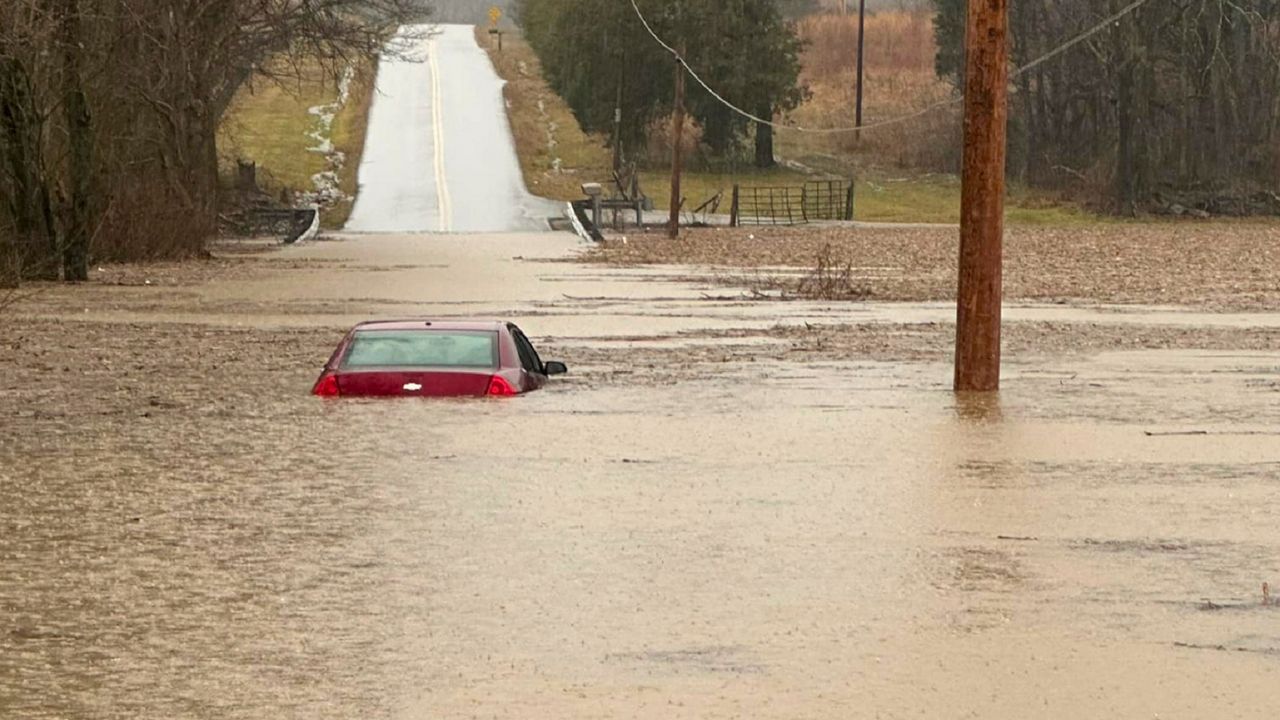CAMPBELLSBURG, Ky. — When meat processors in Kentucky heard about the cyberattack on the processing giant JBS, there was some concern and immediate flashback to the meat rush experienced during the pandemic. John Edwards, who co-owns Trackside Butcher Shoppe in Campbellsburg, has seen about five times the demand for meat since before the COVID-19 pandemic began. Although some meat processing facilities around the country temporarily closed because of the hack, and JBS Pork in Louisville delayed some shifts, Edwards and meat industry experts say there's no meat shortage to fear.
What You Need To Know
- Meat processing company JBS is getting back online after a cyberattack over the weekend
- JBS Pork Louisville initially delayed some shift hours but announced a return to regular hours for Thursday
- Smaller businesses say they've felt no impact from the "hiccup," and expect no shortage in the supply chain
- Agriculture Secretary Ryan Quarles says measures are in place to "ramp up" meat processing at other facilities, should JBS be further impacted by the hack
Edwards processes beef, pork, goat and lamb at his facility. He strolls through the carcass aging cooler to prove it.
"We'll let caracasses hang in here for about two weeks before we process 'em and package 'em for the customer," Edwards explained.
His business saw demand like never before during the COVID-19 pandemic when other facilities shut down due to staff cases. "We quit answering the phone. You know, it just got so busy," he said.
The news of the cyberattack caused an immediate flashback.
"My first reaction was 'here we go again,' you know. That was my first thought, potentially this could be another rush," Edwards said.
So far, however, Edwards said there's no reason to fear a short in the meat supply chain as a result of the JBS hack. The company announced it's mostly come back online since the weekend attack. On Wednesday night, JBS Pork Louisville posted a memo to its workers that shifts will resume at the regular time for Thursday.
Still, a cyberattack is a serious issue to Agriculture Commissioner Ryan Quarles. He told Spectrum News 1 he's been in contact with JBS and offers the company his department's support.
"I'm very concerned about out-of-country terrorists attacking, in a virtual way, our meat supply system," said Quarles. "I've been in contact with JBS, which is responsible for one fourth of all beef processing in America and one fifth of all pork processing in our country. I've been in contact with them. They're working with the FBI right now, and we are hoping that the sooner they can get back online, the less disruption we'll see in the food production system."
The University of Kentucky College of Agriculture's Dr. Gregg Rentfrow called the hack a "hiccup," and feels the impact to supply will be minimal if felt at all. Rentfrow said meat processing was increased over the summer due to the rush brought on by the pandemic. There are even new processors preparing to come online.
"It's going to be kind of interesting in the next couple of weeks or so to see what this hiccup does," said Rentfrow. "I think it literally is just a hiccup. I don't think there are going to be any long-term problems."
Edwards said any impact to his business will be trickled down from the larger operations, especially if supermarkets run short on meat. He feels it can all be prevented, as long as consumers don't panic buy and overstock.
"If people panic, if people think that this could be a problem and that, 'I better stock up', then there will be shortages," he affirmed.
He instead is urging people to get to know their local butcher. That's pretty much what's happened, around Henry County, "People have started looking differently at where their meat comes from."










